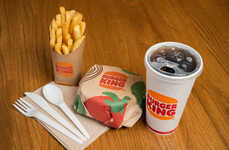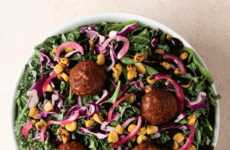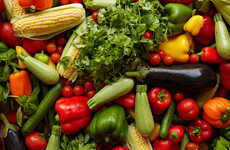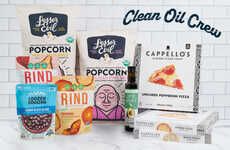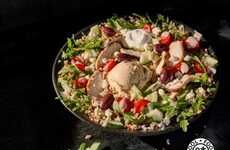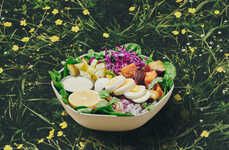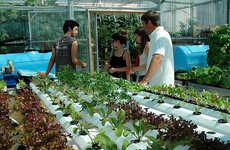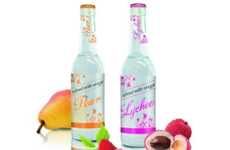
7 Leaders of the Eco Food Drive
Going Like Sixty — August 27, 2008 — Eco
References: fastcompany
Fast Company features seven food company executives that are leading their company into making the food chain greener, cleaner, and healthier.
Surprisingly, Coca-Cola considers themselves in the "hydration business." That's surprising because Coca-Cola uses 290 billion liters of water to make its products. Currently, 84% of the water is treated and returned to the environment. Jeff Seabright, the exec in charge, says they will be 100% by 2010.
Other excerpts from Fast Company:
Fedel Bauccio, Bon Appetit Management: "I like a great hamburger as much as anyone...but...livestock operations produce 18% of all worldwide greenhouse-gas emissions. We will cut our beef consumption by 23%."
Margaret Wittenberg, Whole Foods Market: "We invited animal welfare groups and scientists to join us at the table."
Henry and Lisa Lovejoy, Ecofish: "Our number one mission...was to make sure the fish we sold were sustainably produced..."
Eduardo Sanchez, Blue Cross Texas: "At Blue Cross we have to keep members healthy"
Natalie Reitman-White, Organically Grown: "Low hanging fruit...switching to biodiesel for
our fleet."
Surprisingly, Coca-Cola considers themselves in the "hydration business." That's surprising because Coca-Cola uses 290 billion liters of water to make its products. Currently, 84% of the water is treated and returned to the environment. Jeff Seabright, the exec in charge, says they will be 100% by 2010.
Other excerpts from Fast Company:
Fedel Bauccio, Bon Appetit Management: "I like a great hamburger as much as anyone...but...livestock operations produce 18% of all worldwide greenhouse-gas emissions. We will cut our beef consumption by 23%."
Margaret Wittenberg, Whole Foods Market: "We invited animal welfare groups and scientists to join us at the table."
Henry and Lisa Lovejoy, Ecofish: "Our number one mission...was to make sure the fish we sold were sustainably produced..."
Eduardo Sanchez, Blue Cross Texas: "At Blue Cross we have to keep members healthy"
Natalie Reitman-White, Organically Grown: "Low hanging fruit...switching to biodiesel for
our fleet."
Trend Themes
1. Sustainable Food Chain - Disruptive innovation opportunity: Developing technology and practices to create a more sustainable and environmentally friendly food production and distribution system.
2. Animal Welfare and Sustainability - Disruptive innovation opportunity: Finding ways to improve animal welfare and reduce greenhouse gas emissions in livestock operations, while maintaining profitability in the food industry.
3. Healthcare-driven Food Initiatives - Disruptive innovation opportunity: Collaborating between healthcare and food industries to promote healthier eating habits and improve overall well-being of consumers.
Industry Implications
1. Food and Beverage - Disruptive innovation opportunity: Developing eco-friendly practices and products that align with the growing consumer demand for sustainable and healthier food options.
2. Healthcare - Disruptive innovation opportunity: Integrating food and healthcare industries to create initiatives that focus on preventive healthcare through improved nutrition and diet.
3. Environmental Technology - Disruptive innovation opportunity: Creating innovative solutions and technologies to reduce the environmental impact of food production and distribution, such as sustainable packaging and waste reduction.
1.7
Score
Popularity
Activity
Freshness


